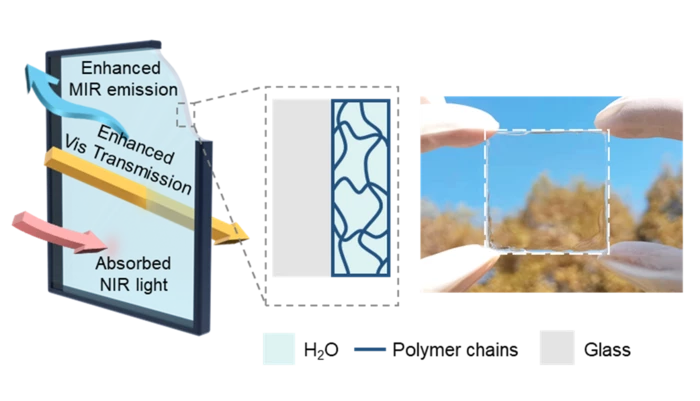After the summer so much of the world has sweltered through this year, better ways to cool buildings are on a lot of people’s minds. Researchers in China have now spruced up the humble window with hydrogel-glass, a material that can selectively block heat from the Sun without blocking its light.
Regular glass is designed to allow visible light to pass through and brighten up the room, but its interactions with infrared light – felt as heat – are less desirable. Glass lets near-infrared radiation from sunlight pass through, while preventing mid-infrared light from escaping the room, which works to heat up a building. In summer, that stifling heat will drive people to crank up the air conditioner more often, resulting in more energy consumption.
To try to counter that problem, scientists at Wuhan University have now experimented with new materials for windows that interact with light differently. A hydrogel coating just a few millimeters thick over glass was designed to reflect more of the near-infrared light from outside and allow more mid-infrared light to escape from inside, all while remaining just as transparent to visible light.
The idea is that photons of visible light can penetrate over 1 m (3.3 ft) into water, while photons in the near-infrared part of the spectrum can only make it a few millimeters. Since hydrogels are mostly water, that makes it a useful, selective barrier.

In tests, the team found that the hydrogel-glass emitted as much as 96% of the infrared light directly into space, since these wavelengths aren’t blocked by the atmosphere. This would help keep the interior of a building cooler, in a similar way to other radiative cooling systems. Regular glass, meanwhile, emits around 84%.
Importantly, the hydrogel-glass doesn’t look dimmer than regular glass – in fact, it actually lets slightly more light through. Depending on the thickness of the hydrogel layer, it allowed up to 92.8% of the visible light into the room, compared to 92.3% for ordinary glass.
The team tested the performance of the hydrogel-glass on model houses measuring 20 x 20 x 20 cm (7.9 in), with thick insulated walls and one big window. Sensors indicated that the hydrogel-glass windows reduced interior temperatures by up to 3.5 °C (6.3 °F).
The team says that this material could help reduce energy consumption for cooling, which would benefit both the environment and user’s wallets. Hydrogels are also common and inexpensive, so should be relatively simple to roll out, which might give them an advantage over other, more complex smart windows.
The research was published in the journal Frontiers of Optoelectronics.
Source: Higher Education Press via Eurekalert




